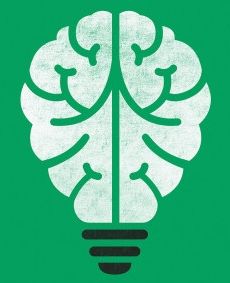Andrew Ng hands me a tiny device that wraps around my ear and connects to a smartphone via a small cable. It looks like a throwback—a smartphone earpiece without a Bluetooth connection. But it’s really a glimpse of the future. In a way, this tiny device allows the blind to see.
Ng is the chief scientist at Chinese tech giant Baidu, and this is one of the company’s latest prototypes. It’s called DuLight. The device contains a tiny camera that captures whatever is in front of you—a person’s face, a street sign, a package of food—and sends the images to an app on your smartphone. The app analyzes the images, determines what they depict, and generates an audio description that’s heard through to your earpiece. If you can’t see, you can at least get an idea of what’s in front of you.
Artificial intelligence is changing not only the way we use our computers and smartphones but the way we interact with the real world.
